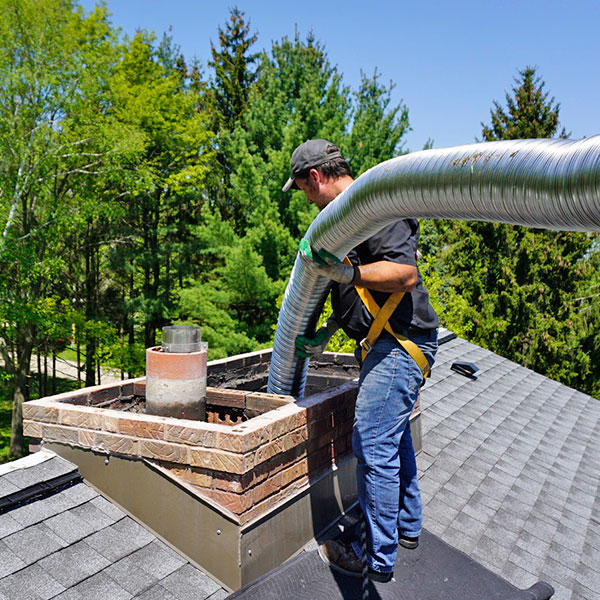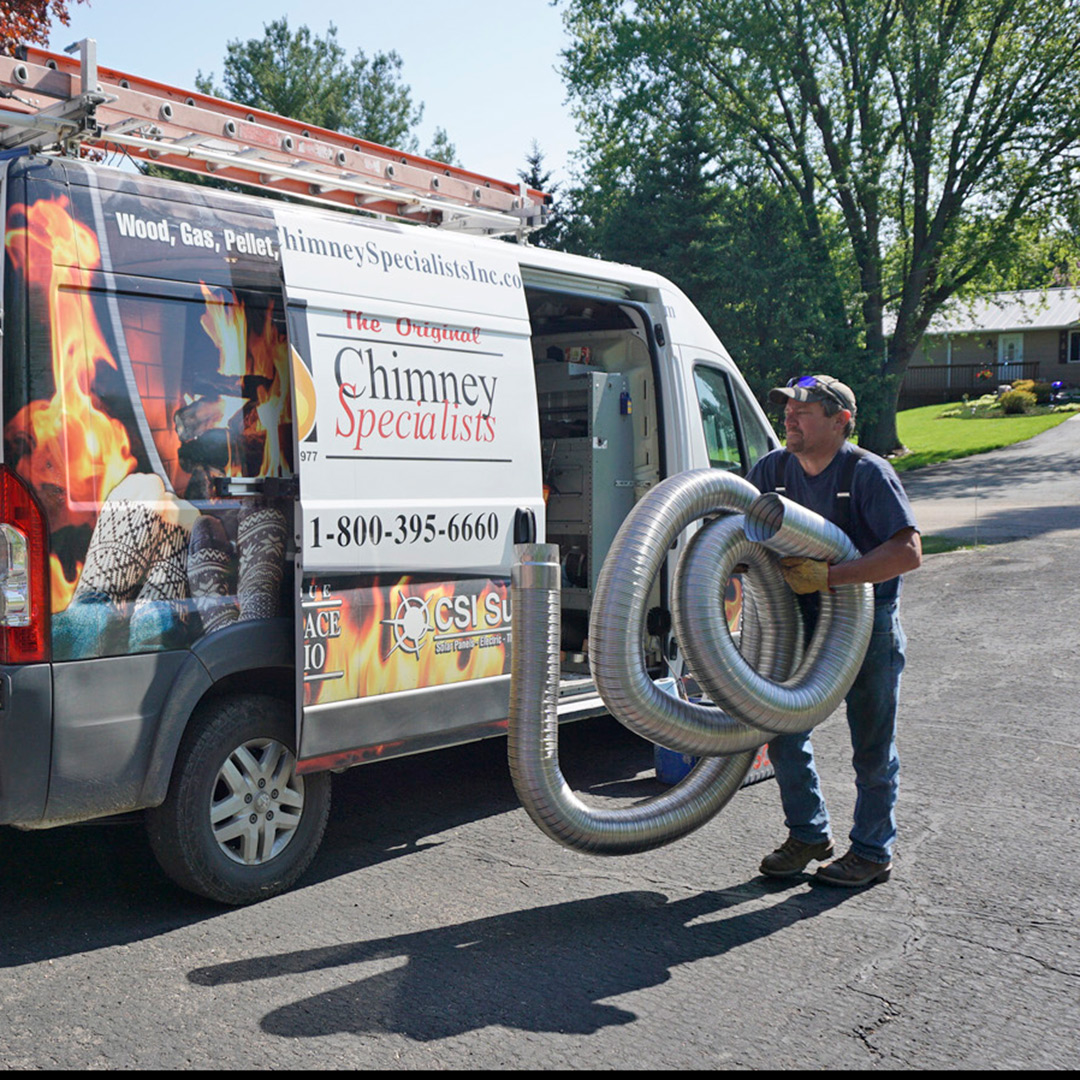Do I Need to Insulate My Chimney Liner?
Your fireplace provides warmth and comfort during the long, dreary winter months, providing a refuge from the cold. The heat generated in your fireplace goes up its chimney and can reach scorching temperatures, making a chimney liner a crucial component of your chimney. You may be asking; do I need to insulate my chimney liner since it gets so hot? That is an excellent observation and deserves a closer look. Read on to find the answer to that question.
 What is a Chimney Liner?
What is a Chimney Liner?
To understand if your chimney liner needs to be insulated, you first must understand what it does. A chimney liner is a barrier that guards the structure of your home from excessive heat in your chimney and igniting a fire. It also has a second job: to prevent harmful gases from invading your home. In most cases, a fireplace liner is made from metal or ceramic material and can endure high temperatures while insulating your fireplace.
What Else Does a Chimney Liner Impact?
Your Chimney liner doesn’t just protect your home from going up in a blaze; it also preserves your chimney’s masonry. It saves the brick-and-mortar chimney, which makes up your chimney’s structure, from temperatures that could damage it.
Does My Chimney Need Insulation?
If you have a stainless-steel chimney liner, the answer is yes. It will allow your flue to warm up quickly and maintain a higher temperature, which will aid the draft effect. Why is that important? With an inadequate draft, your fire won’t burn as hot or as long, definitely something you don’t want to contend with in the dead of winter.
Another excellent reason for insulating your chimney liner is to hinder the buildup of creosote. What is creosote? It is a sticky tar-like substance that builds up in your chimney over time and is the leading cause of chimney fires. The more creosote that compiles inside your chimney, the more flammable it becomes. Just for safety reasons alone, you should insulate your chimney liner.
The Types of Chimney Liner Insulation
There isn’t a wide variety of chimney liners; in fact, there are only two main types. Let’s take a look at both.
The Insulation Blanket
An insulation blanket is the easiest type of chimney liner to deal with. You may have seen blanket insulation wrapped around something, such as your hot water heater. Insulation blankets are made from a highly dense substance known as alkaline earth silicate, which can endure high temperatures without breaking down; don’t use fiberglass, it’s not rated for these high-temperature situations. Just like a hot water heater, the insulation wraps around the chimney liner- like a blanket. In certain situations, a fit may be too tight for the space the chimney liner is in, which will require a different route.
Vermiculite Chimney Insulation Mix
Vermiculite chimney insulation mix (vermiculite for short) is the alternative insulation for a chimney liner when there isn’t a lot of space available. The mixture that is poured around the chimney liner is a mixture of vermiculite and Portland cement. Once it dries, vermiculite is a zero-clearance U.L.-rated insulation.
Remember, always use a qualified chimney sweep service to insulate your chimney liner, no matter what type of insulation you choose. The chimney sweeps have the tools, training, and experience to install chimney insulation quickly and without incident. Installing chimney liner insulation is not a do-it-yourself project for the weekends.
 To Sum Up
To Sum Up
Chimney liners guard the structure of your chimney, and chimney liner insulation is crucial in protecting your chimney liner. With an insulated chimney liner, you will get improved heat efficiency and reduce the risk of a chimney liner.
Don’t Trust Just Anyone to Insulate Your Chimney, Use Dubuque Fireplace and Patio
If you have made the wise choice of insulating your chimney liner and perhaps replacing a worn old one in the process, trust us to do it. Our chimney sweeps have the training and experience to get the job done right the first time, every time. Get in contact today if you are interested in keeping your house warmer and longer, with less risk of a chimney fire. One of our staff will be glad to discuss your needs.




















